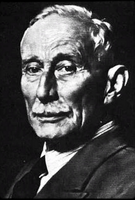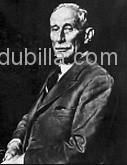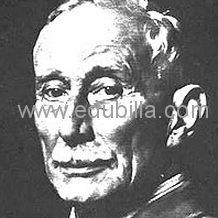










Hubert Cecil Booth is a British engineer who patented a vacuum cleaner and formed the British Vacuum Cleaner company to market a carpet cleaning service.Getting a patent on a new invention does not, in itself, protect it. When infringed, it is the courts that give protection, as many inventors over the centuries have come to know and rue. Although Herbert Cecil Booth invented the first motorized vaccuum cleaner, it is not his name that now epitomizes it. That distinction goes to Hoover.
Early Life
Booth was born in Gloucester, England.He was educated at Gloucester College and Gloucester County School under headmaster Reverend H. Lloyed Brereton. In 1889 he entered the Central Technical College, City and Guild, London after passing the entrance examination. He completed a three-year course in civil engineering and mechanical engineering under Professor William Cawthorne Unwin FRS. He completed the Diploma of Associateship (ACGI), coming second in the engineering department. He became a student of the Institution of Civil Engineers.
Booth's first machine was so large that the pump, powered by an internal combustion engine, travelled on a wagon that stayed (noisily) outside the house, while the home-owner paid for the cleaning service. A long hose ran between the pump outside and the suction nozzle used inside the house. Within only a few years of filing for his patent, Booth was turning to the courts to try to keep the benefits of his idea, for others were then copying it.
In December 1892 he entered the drawing office of Messrs Maudslay Sons & Field, Lambeth, London under Mr Charles Sells, as a civil engineer. In this capacity he designed bridges and large ferris wheels for amusement parks in London, Blackpool, Paris, and Vienna.
He worked on the design of engines for Royal Navy battleships.After seeing a rather inadequate demonstration of a compressed air based cleaning system for railway carriages at St Pancras station, Booth reasoned that sucking air through a filter might be a better system, and thus invented an early version of the vacuum cleaner which was manufactured by Fielding & Platt of Gloucester.His approach was better suited for industrial use than for household use, and his company was soon overtaken by his competitor, Hoover. He received British patents for his work on February 18 and August 30, 1901, and his company continued to specialize in industrial vacuum cleaners.Before Booth introduced his version of the vacuum cleaner, cleaning machines blew or brushed dirt away, instead of sucking it up. All modern vacuums are based on Booth's principle.

